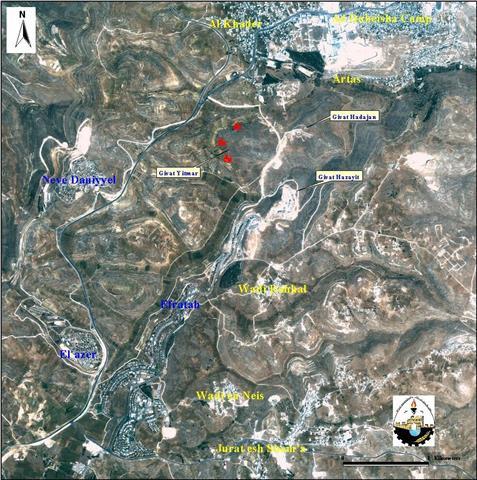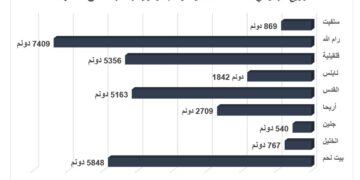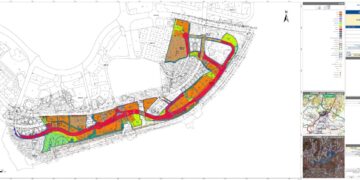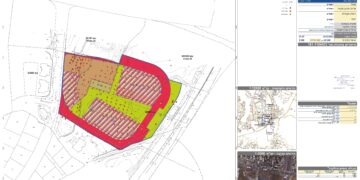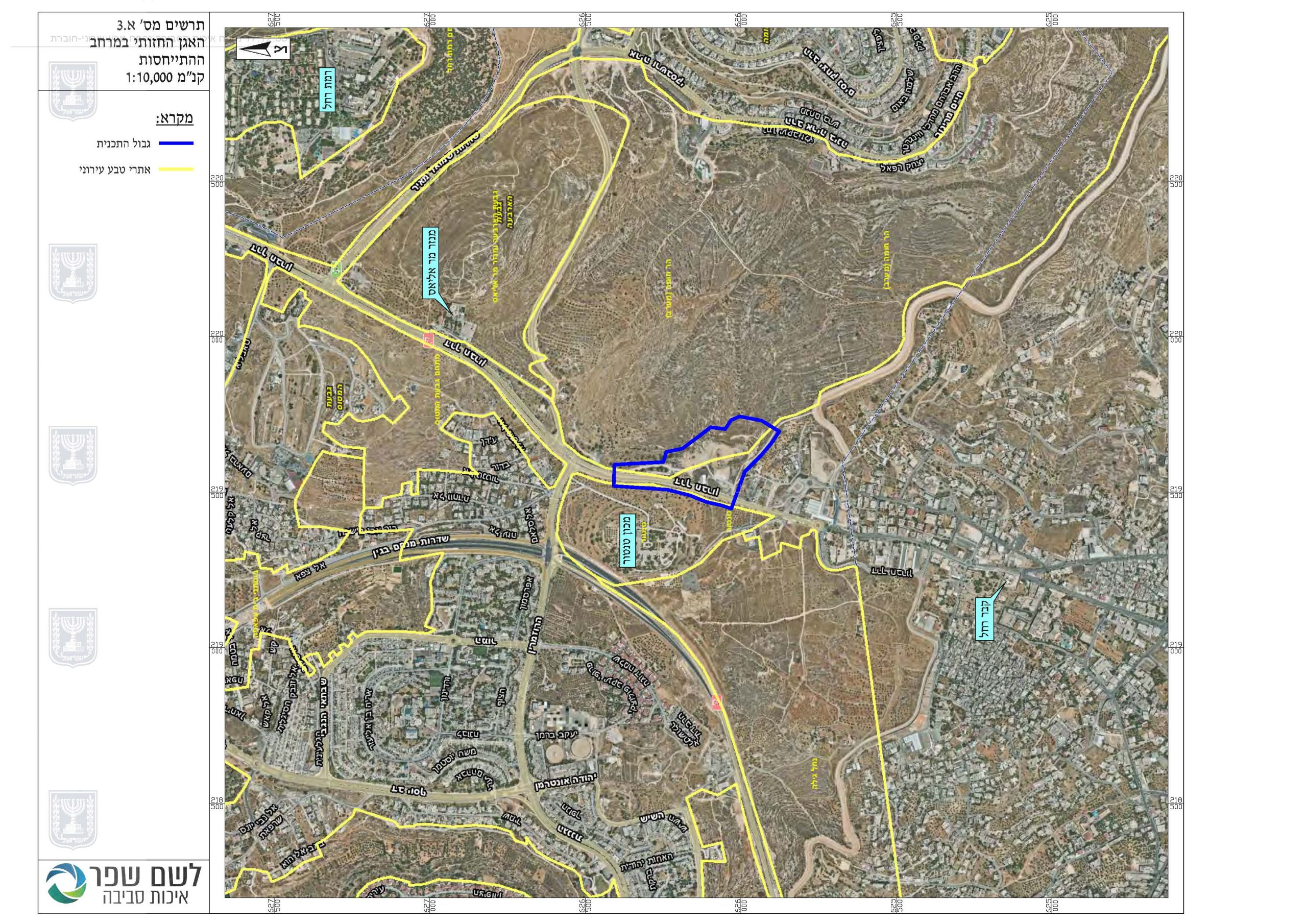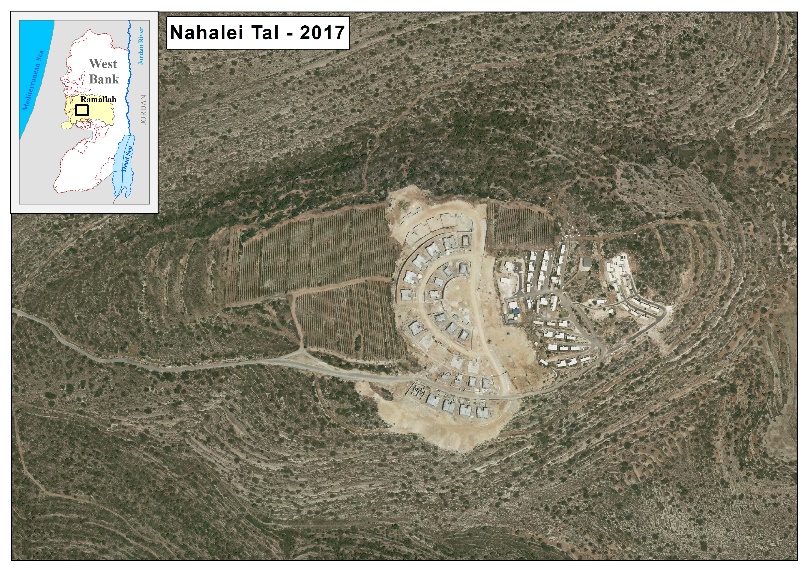Settlers of Efratah settlement, located just south of Bethlehem, have recently established a new outpost by moving several caravans to an adjacent hill. The creation of the outpost, called Givat Yitmar, follows a typical pattern of colonial expansion and demonstrates the insincerity of Israel's talk of a ''settlement freeze.'' See satellite image.
The battle for this particular hill, called Batn Al-M'aasi by Palestinians, has a long history. In November of 1979 the Israeli government ordered the confiscation of the hill for military purposes. In 1981 the status of the hill was changed from a closed military area to one for civilian development and the settlement of Efratah declared its intentions of expanding to the hill as part of its master plan. A fence was constructed around the land, but was then taken down after demonstrations protesting the move. The Palestinian villagers of the Sbeih, D'doo' and Sabah families from Al-Khader, who own the land, took the issue to court. But the case was stalled for years. In December of 1994 Israeli forces began bulldozing land on the hill, resulting in more protests in which 45 Palestinians were arrested. At this time Prime Minister Rabin postponed implementation of the settlement expansion to Batn Al-M'aasi, shifting focus to other nearby hills. Soon two hills adjacent to Efratah settlement were confiscated. Building began on the Givat Hazayit outpost in 1997 ,followed by Givat Hadajan to the north. In addition, a section of bypass road was paved passing by the outposts and connecting them with the bypass road toward Jerusalem. On April 31, 2001 the colonists renewed their efforts to capture Batn Al-M'aasi and moved three caravans to the hilltop after bulldozing the area. An Israeli army tank was also stationed nearby. For the Palestinian owners of the hill, its confiscation means the loss of about 800 dunums of land used primarily for rain fed farming.
Future intentions for the expansion of Efratah settlement are clear from the map below . Over the years, Efratah has expanded snake-like northward toward Bethlehem. The strategy behind the strange growth pattern is to cut off Palestinian villages such as Wadi Rahhal and Wadi En Neis from the lands west of Efratah while at the same time preventing demographic continuity between these villages and the Bethlehem area. The establishment of the Givat outposts completes this task. Even so, there has been activity to suggest that the colonial forces intend to capture yet another hilltop further northeast of Givat Hadajan below . Over the years, Efratah has expanded snake-like northward toward Bethlehem. The strategy behind the strange growth pattern is to cut off Palestinian villages such as Wadi Rahhal and Wadi En Neis from the lands west of Efratah while at the same time preventing demographic continuity between these villages and the Bethlehem area. The establishment of the Givat outposts completes this task. Even so, there has been activity to suggest that the colonial forces intend to capture yet another hilltop further northeast of Givat Hadajan . Furthermore, the expansion of Efratah settlement sections off a large area of land between it and the settlements of Neve Daniyyel and El'azer. This area is now completely isolated from Palestinian villages and will surely be expropriated for settlement expansion in the future. The Isolation of this area for Efratah expansion by necessity eliminates the ability of the Palestinian village of Al-Khadar to meet the needs of its own population growth.
Recently, Israeli authorities have announced the possibility of limiting construction in settlements to within built-up areas as part of a settlement freeze in the context of the end of the Palestinian resistance to occupation. However, the Efratah settlement expansion reveals the insincerity of this ''offer.'' Israel considers each of the Givat outposts neighborhoods of Efratah settlement. Therefore, Efratah will expand to fill in all the area between the outposts and the main settlement, all under the claim that the new housing units are being constructed within a built-up area. The strategic growth of Efratah settlement, including the recent establishment of Givat Yitmar, is but part of the larger development of the gush Etzion settlement block south of Jerusalem, intended to be included in the creation of Israeli-controlled ''Greater Jerusalem.'' Israel will continue to find ways to gain an ever-stronger grip on this and other areas of the West Bank if its deception is not revealed and if it is not held accountable by the world community.
Prepared by:
The Applied Research Institute – Jerusalem


